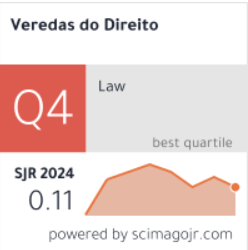THE PROHIBITION PRINCIPLE OF SOCIO-ENVIRONMENTAL RETROGRESSION
ANALYSIS OF THE FLEXIBILITY OF LEGISLATION ON THE USE OF PESTICIDES
DOI:
https://doi.org/10.18623/rvd.v20.2511Abstract
This article presents the Principle of Prohibition of Retrogression with emphasis on the loosening of legislation on the use of pesticides. The objective is to analyze the reflexes of the Principle of Prohibition of Socio-environmental Retrogression to fundamental rights. Special emphasis was placed on the intangibility of Human Rights, the concept of the principle of non-regression and the Socio-Environmental Rule of Law. The article also aims to understand the consequences of the use of pesticides in Brazil and their effects on fundamental rights (right to food, health, ecologically balanced environment, among others). This study identifies how the loosening of legislations on the use of pesticides violates the Principle of Prohibition of Retrogression. Thus, the hypothesis is that the State™s involvement and its actions are fundamental to guarantee, protect and preserve fundamental and environmental rights. The method to be used is the hypothetical-deductive, with the realization of a bibliographical research. Finally, it is concluded that environmental protection cannot have setbacks, being a limiter of state power.Published
How to Cite
Issue
Section
License
I (we) submit this article which is original and unpublished, of my (our) own authorship, to the evaluation of the Veredas do Direito Journal, and agree that the related copyrights will become exclusive property of the Journal, being prohibited any partial or total copy in any other part or other printed or online communication vehicle dissociated from the Veredas do Direito Journal, without the necessary and prior authorization that should be requested in writing to Editor in Chief. I (we) also declare that there is no conflict of interest between the articles theme, the author (s) and enterprises, institutions or individuals.
I (we) recognize that the Veredas do Direito Journal is licensed under a CREATIVE COMMONS LICENSE.
Licença Creative Commons Attribution 3.0








